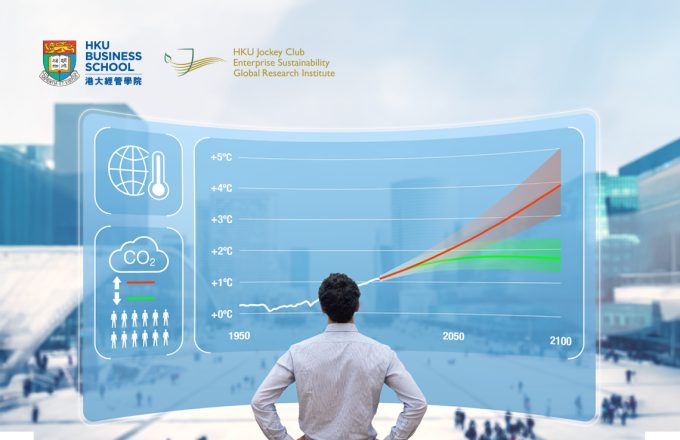Power to the Stakeholders

Mandatory supply chain transparency boosts supply chain due diligence by enabling closer scrutiny by stakeholders
The treatment of workers in supply chains is frequently the most visible aspect of the growing demand for firms to disclose their ESG practices. But for many firms under constant pressure to boost profits, ensuring respect of human rights for workers in often distant supply chains is a challenge. Responsible sourcing and better monitoring of supply chains could help tackle the issue, but firms often have little incentive to take action that could lead to improvements. Now, a new study by the University of Hong Kong[1] shows that mandatory supply chain transparency has a demonstrable impact on firms and their supply chains.
Demand for nonfinancial information
Mandatory nonfinancial disclosure goes beyond traditional financial disclosures to tell a deeper story about a firm’s environmental, social and governance (ESG) practices, supply chain and risk management.
Requirements to disclose nonfinancial information reflect the growing importance of firms’ ESG to investors and customers. This information includes environmental impact, policies on human and labour rights, and details about the human rights policies of its suppliers, among other information.
ESG information is increasingly requested by investors and corporate customers when deciding which firms they want to invest in or do business with, and by individual consumers when making purchasing decisions.
Increasingly, issues such as human rights that were once seen as unrelated to a firm’s financial performance are now understood to impact firms’ revenues, company performance and reputation. One of the earliest major examples of how human rights failings can damage a firm was Nike, which was boycotted in the 1990s because of labour abuses in its overseas supply chain. The company later began to monitor and audit its outsourced overseas suppliers.
In the years since then, stakeholders have increasingly sought to ensure that the firms they do business with adhere to societal values, including global benchmarks such as those set by the United Nations Sustainable Development Goals, or SDG. The SDG includes a commitment to “Take immediate and effective measures to eradicate forced labour, end modern slavery and human trafficking and secure the prohibition and elimination of the worst forms of child labour…[2]”
The globalization of supply chains in recent decades has highlighted the problems in supply chains and made the need for action more urgent. In a 2017 report, the International Labour Organization, (ILO), reported that 40.3 million people were enslaved, and 15 million children were child labourers.
Such reports have increased public, NGO and other stakeholder awareness and concern about the extent of abuses, and fuelled growing demand for action. In its Business and Finance Outlook 2020: Sustainable and Resilient Finance[3], the OECD notes that over the past decade institutional and retail investors have sought to ensure that their investment portfolios reflect wider social values. This is a growing trend, according to the OECD, with surveys of professional investors showing that they believe this information is important to determine a firm’s risk management levels and whether its strategy is aimed at achieving long-term returns.
According to PwC, disclosure of nonfinancial information relating to corporate social responsibility is “essential for building trust in society by responding to the expectations and needs of society and for communicating with external stakeholders, including investors, regarding medium- and long-term value creation. It is an important element to be incorporated into and used effectively in decision-making mechanisms”.[4]
Firms’ resistance
While firms have been coming under increased pressure to show their social responsibility in nonfinancial areas, the story of their due diligence on matters relating to slave workers and labour infringements is not always a tale that firms have been willing to tell. However, the benefits of ensuring that they make public their due diligence is now apparent.
The new report by the University of Hong Kong shows that when firms are pressured to reveal how they address due diligence in their supply chain, their due diligence increases. The same pressure also leads to improvements in the human rights performance of their supplier companies.
The Nike experience already showed how stakeholder activism can lead to change in how firms do business. The new research shows that when firms are pushed to reveal what they are doing to counter risks of slavery and labour abuses in their supply chain, the act of self-reporting and disclosure spurs change in how firms conduct their businesses, which they do by improving due diligence of their supply chains.
Importantly, the research shows that these improvements occur even when firms are under no pressure to improve their due diligence from governments or from the threat of a potential legal penalty.
A model for disclosure regulation
The research takes as a model the California Transparency in Supply Chains Act, an act passed by the California legislature in 2010 that requires firms to disclose their due diligence to eradicate human trafficking and forced labour from their supply chains. The Act requires large manufacturing and retail firms of a certain size doing business in the state to self-report in a standardized format on five topics: assessment, audit, certification, internal accountability and training.
The standardization of the format reduces the cost and burden of information collection by stakeholders. It also makes it easier to compare information from different firms, enabling customers and investors to make more informed choices.
Crucially, the Act requires only disclosure—there is no requirement for firms to conduct due diligence.
The Role of Stakeholders
The main pressure on firms to make changes, then, does not come from regulation or fear of fines, but from stakeholders—investors, individual customers, corporate customers and activists.
For investors, the most cited motivation for socially responsible investment is to project a positive image to customers. Several studies[5] have found that retail customers take supply chain issues seriously and are willing to pay more for products made according to ethical sourcing policies. Due diligence is also important to corporate customers as they seek to avoid risks of reputational damage and supply chain disruptions.
Activist NGOs, such as KnowTheChain, are also very interested in these disclosures. In fact, the California Act was sponsored by actress and social activist Julia Ormond.
Impact of the regulation
The research measured the behaviour of firms affected by the Act. The results showed that firms increased their due diligence by disciplining unacceptable labour practises in their supply chain, resulting in a 15 percent improvement in suppliers’ human rights performance as well as a decline in incidents of labour-law violations by suppliers. Some firms in the study ceased doing business with bad suppliers while some entered new business relationships with good suppliers. In both cases, the improvements are due to firms adopting more socially responsible sourcing policies as a consequence of the Act.
The effects were stronger for firms that were being monitored by NGOs and that had a higher number of socially-minded institutional investors. The act of disclosure drew the attention and scrutiny of activist groups, making it more likely that they might expose firms with socially irresponsible practices and that investors would take note. To avoid this possibility, firms took early action to increase their due diligence.
The effects were also stronger when firms were dealing with suppliers located in countries where the risk of labour abuse is higher, and also when their customers were more socially conscious.
The results “provide new evidence that even without legal action by government, disclosure regulation can induce real effects through market mechanisms by allowing stakeholders to make informed decisions and exert public pressure on treated firms,” says the report.
Transparency leads to change
The California Act created a level playing field and a baseline for disclosure. It did this by making disclosure obligatory for all firms over a certain size, using a standardized format which made it easier for stakeholders to access and compare information, and establishing a reference point for market expectations. The findings demonstrate the power of stakeholders to impel meaningful change in firms’ due diligence through the use of disclosure regulations.
The regulation succeeded in effecting change in firms’ behaviour based simply on the requirement for transparency. By making it easier for stakeholders to compare human rights behaviour across firms, customers and social activists, as well as investors, are empowered to demand change or withdraw their support. In turn, the knowledge that their performance can be measured by stakeholders or publicly condemned by activists propels firms to take action to improve or change their supply chains.
More broadly, a push by regulators and governments to improve transparency requirements across international supply chains could bring about far-reaching reductions in human rights abuses and bring the target of ending human slavery closer to reality.
About this Research
Guoman She (2022). The Real Effects of Mandatory Nonfinancial Disclosure: Evidence from Supply Chain Transparency. The Accounting Review 97 (5): 399–425.
References
[1] The Real Effects of Mandatory Nonfinancial Disclosure: Evidence from Supply Chain Transparency. Guoman She, The University of Hong Kong. Published in The Accounting Review, Vol 97, No 5, September 2022, pp 399-425.
[2] https://www.unodc.org/roseap/en/sustainable-development-goals.html#:~:text=Target%208.7%20%2D%20Take%20immediate%20and,labour%20in%20all%20its%20forms
[3] https://www.oecd-ilibrary.org/sites/e9ed300b-en/index.html?itemId=/content/component/e9ed300b-en
[4] https://www.pwc.com/jp/en/knowledge/thoughtleadership/non-financial-information-management.html
[5] For example, Johnston, R. J., and C. A. Roheim. 2006. A battle of taste and environmental convictions for ecolabeled seafood: A contingent ranking experiment. Journal of Agricultural and Resource Economics 31 (2): 283–300; Also: Eichholtz, P., N. Kok, and J. M. Quigley. 2010. Doing well by doing good? Green office buildings. American Economic Review 100 (5): 2492–2509. https://doi.org/10.1257/aer.100.5.2492







